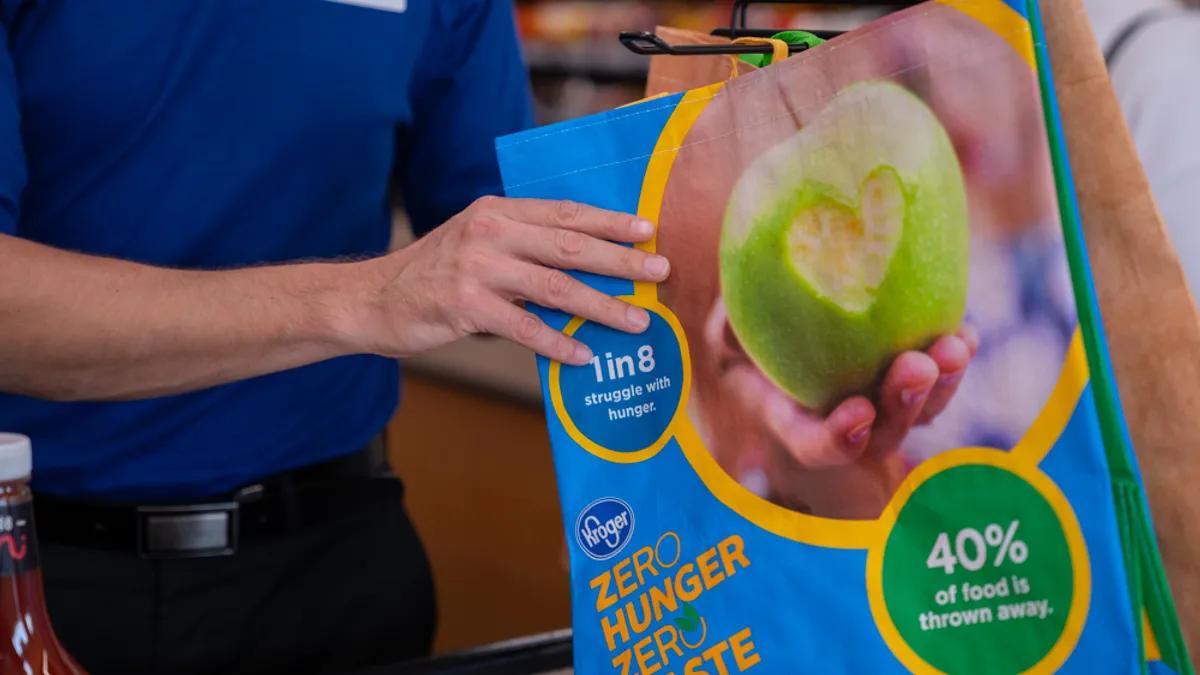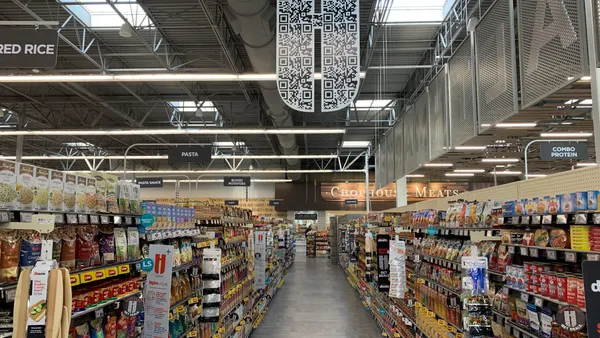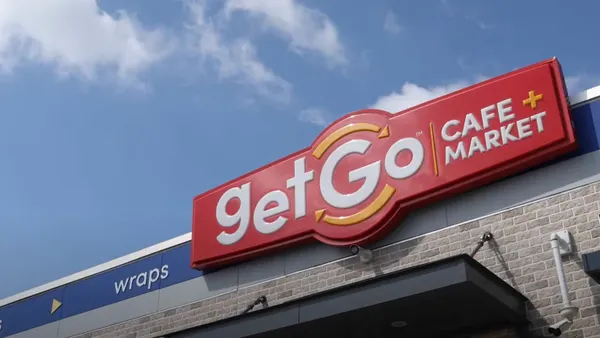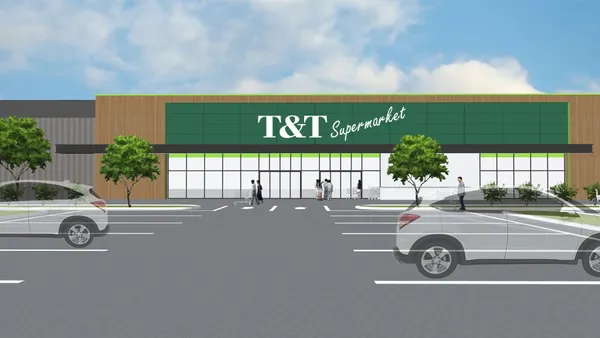Dive Brief:
- San Francisco and Massachusetts have stopped preventing people from bringing reusable bags into stores when they shop for groceries, reversing health-related directives issued earlier in the pandemic.
- On Monday, the San Francisco Department of the Environment said stores should post signs inviting customers to bring their own reusable bags. People must bag their own groceries and prevent the bags from touching employees or conveyor belts, and stores must charge 25 cents each for bags they supply, according to the city.
- The Massachusetts state health commissioner last Friday rescinded an order issued in March that barred customers from using reusable bags in grocery stores and pharmacies. The change also means stores can resume collecting fees for paper or plastic bags in accordance with local regulations intended to cut down on the use of disposable bags by consumers.
Dive Insight:
The pandemic threw a wrench into efforts by state and local governments around the country to stop the use of disposable plastic bags in grocery stores, either through bans or per-bag charges. Concerned that reusable bags might harbor the virus and encourage its spread, authorities preempted initiatives that had been developed to protect the environment as they issued emergency directives designed to keep retail environments safe.
Health officials have begun rolling back their efforts to keep reusable bags out of stores as research indicates that the likelihood of the virus spreading through contact with surfaces is minimal. COVID-19 is believed to spread primarily through contact between people, although the possibility of transmission via touching a surface or object has not been ruled out, according to the Centers for Disease Control and Prevention.
In June, more than a hundred scientists issued a statement that said reusable items, including bags, can be used safely despite the presence of the novel coronavirus as long people take precautions.
Massachusetts still requires grocery stores to adhere to a host of other requirements designed to reduce the spread of the virus in retail environments, CBS Boston reported. That means stores must keep salad bars and seating areas closed, offer hand sanitizer to shoppers, require social distancing and reserve at least one hour each morning for shoppers who are 60 or older.
Grocers had embraced the reusable bag movement before the pandemic began. Stop & Shop said in July 2019 that it would give free reusable bags to shoppers who brought plastic bags to its Connecticut stores for recycling to help them get used to the state’s new plastic bag ban.
Last December, Giant Eagle said it would eliminate plastic bags from its stores by 2025. The chain also announced plans to sell reusable bags for 99 cents in certain areas through a pilot.
In February, Publix started giving away custom-designed, reusable grocery bags to shoppers in Miami Beach, Florida, to reduce customer use of plastic bags. At the time, the grocer said it hadn’t decided whether to expand the program.












